Youth Violence
Gun violence is the leading cause of death for young people in America. But youth violence interventions can help keep kids safe and reach those who are the hardest to reach.
America’s gun violence problem is having an outsized impact on the most vulnerable members of our society — our kids. Fundamental disparities in public safety mean that children and young people live in communities that are disproportionately exposed to violence. Consistent exposure to gun violence has detrimental effects on mental health, emotional development, and academic engagement. For example, our research suggests that 38% of school-aged girls in Chicago public high schools citywide exhibit signs of PTSD — double the probability of PTSD in service members returning from Iraq and Afghanistan. Undoing decades of disinvestment won’t happen overnight, but we need to find ways to keep kids safe and reach those who are hardest to reach.
The Crime Lab partners with local schools, community violence intervention programs, and criminal justice agencies to connect young people with behavioral and mental health supports to help them navigate difficult situations, boost academic involvement, and reduce violence involvement.
Choose to Change, a program focused on gang-involved youth, found participants had 48% fewer violent crime arrests.
Our evaluation of Becoming a Man found the program helped cut violent-crime arrests in half and boost high school graduation rates by nearly 20%.
Back to Our Future (B2OF)
Back to Our Future (B2OF) is a state-funded, district-led, evidence-informed effort to re-engage disconnected students at an elevated risk for gun violence involvement.
Read the new policy brief.
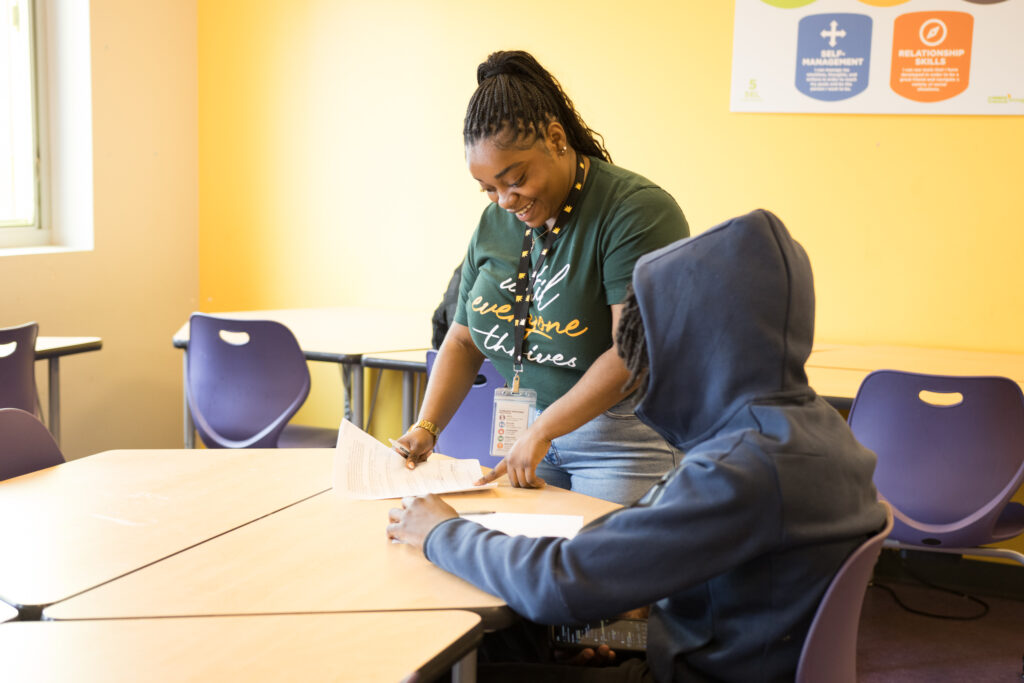
Choose to Change®
The Choose to Change® program combines trauma-informed therapy with wraparound supports and aims to reduce youth violence while improving educational outcomes outside of an institutional setting.

CVI Leadership Academy
The Community Violence Intervention Leadership Academy is designed to deepen the leadership and management practices of senior CVI leaders so they can effectively manage community-based organizations and implement CVI strategies at scale.
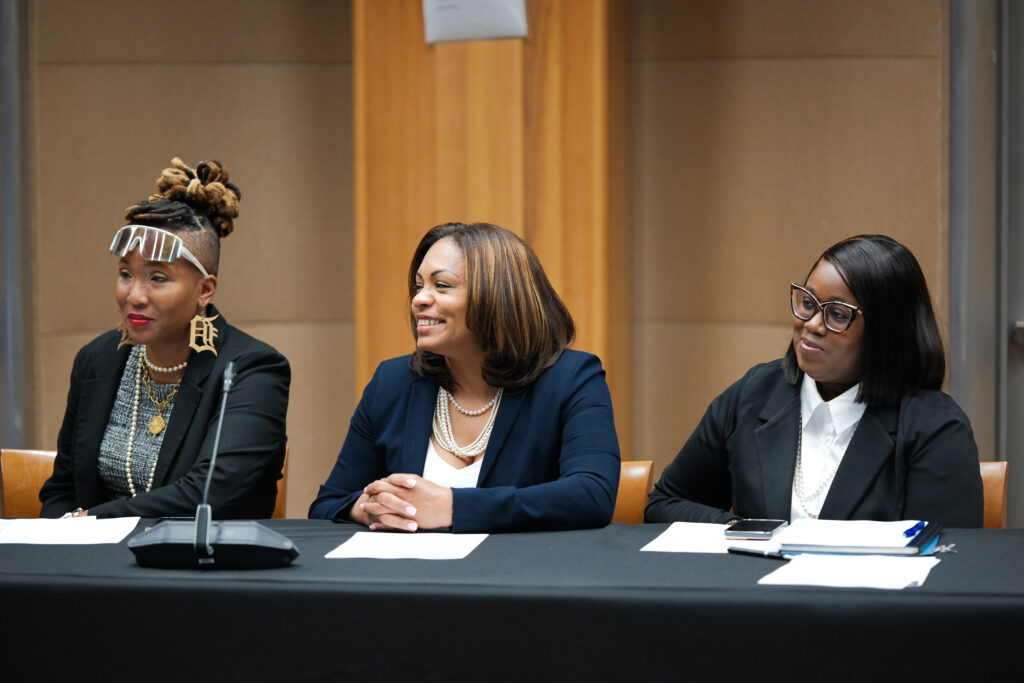
Juvenile Intervention and Support Center (JISC)
The Crime Lab supports the Department of Family and Support Services (DFSS) in its efforts to evaluate and improve the Juvenile Intervention and Support Center (JISC), a prototype facility designed to divert children from the justice system and support their development.


Choose to Change® (C2C®) Program Guide
This program guide is intended for community-based organizations working to fill gaps in services and reach an underserved population of youth impacted by violence and trauma.
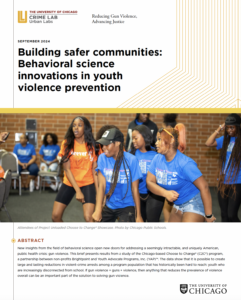
Building safer communities: Behavioral science innovations in youth violence prevention
This policy brief highlights results from a large-scale randomized controlled trial that evaluated the impact of Choose to Change® (C2C®) on participants’ criminal justice involvement.

Unpacking the Impacts of a Youth Behavioral Health Intervention: Experimental Evidence from Chicago
This working paper details results from a study of Choose to Change® (C2C®), a trauma-informed cognitive behavioral therapy and intensive mentoring program developed by nonprofits Brightpoint and Youth Advocate Programs, Inc. (YAP).
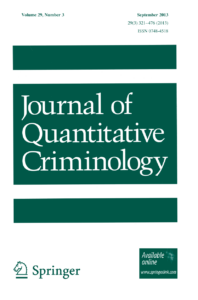
Improving Programming in Juvenile Detention: The Impact of Project Safe Neighborhoods Youth Outreach Forums
This paper presents the results of a randomized controlled trial of a youth outreach forums program run in the Cook County Juvenile Detention Center (JTDC) by the Northern Illinois Project Safe Neighborhoods Task Force.
Latest Updates
Kelly Leonard: How improv can help police do their job
Kelly Leonard joins WGN’s John Williams to discuss The Second City’s partnership with the Crime Lab’s Policing Leadership Academy that’s using improv to help officers improve their communication skills.

Novel approaches can chip away at gun violence, and make a big difference
In an op-ed for the Chicago Sun-Times, Crime Lab Pritzker Director Jens Ludwig argues that when it comes to gun violence, we’ve been focused on the wrong solutions – a key insight from his new book, “Unforgiving Places: The Unexpected Origins of American Gun Violence.”
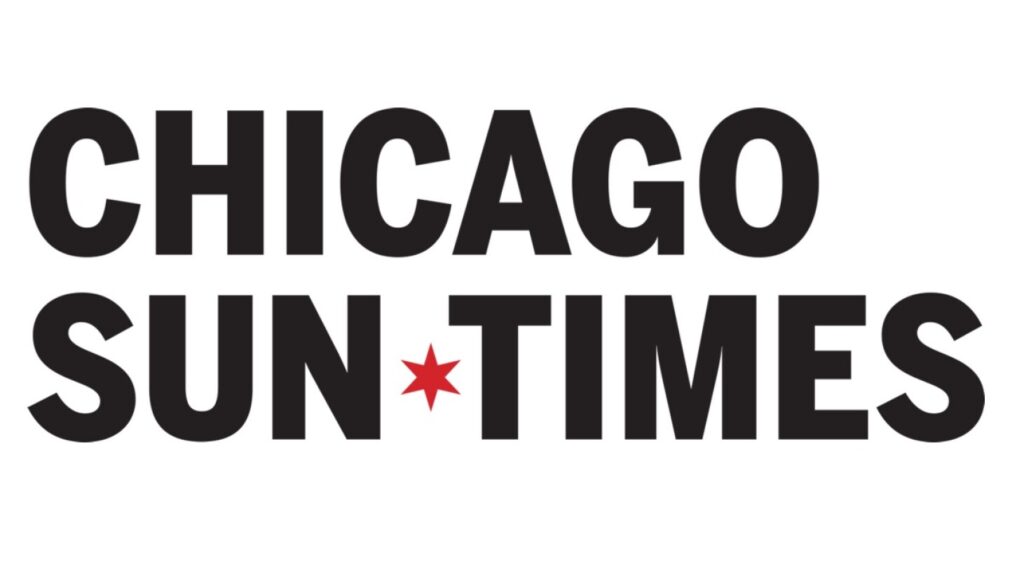
New book challenges conventional wisdom on Chicago shootings
Crime Lab Pritzker Director Jens Ludwig joins WGN’s Mike Lowe for an interview to discuss his new book “Unforgiving Places: The Unexpected Origins of American Gun Violence,” and how the book challenges our conventional wisdom about why shootings occur and how we can make progress on gun violence.

